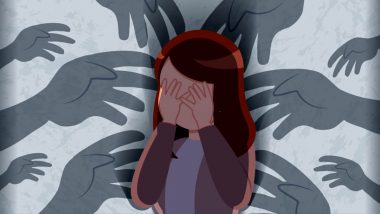Mumbai city recorded the decade’s second-highest March temperature on Sunday at 41 degree Celsius. The city will be facing a heat wave, a period of abnormally hot and humid weather. And according to the predictions by the Indian Meteorological Department, the heat wave that started on Sunday is expected to last for another 24 hours. This definitely doesn’t bode well for the city, which is yet to see harsher summers in the months to come. The rising temperature will cause worsening of health problems.
The internal temperature of a human body is 37 degree Celsius. Anytime your core body temperature crosses 40 degree Celsius, it could cause cellular damage and in extreme cases can also lead to multi-organ failure and death.
So if you are on medication or are overweight; prone to dehydration and fever; have a history of heart diseases, mental illness and poor circulation, you should be better prepared against the heat wave. Here are some ways the heat wave could affect your health.
Dehydration
Dehydration or loss of water from the body is the most common adverse effect of a heat wave. Heat can rob the body of its water reserves, making you severely dehydrated.
What you can do
The best antidote for this situation is to have plenty of water. Eating vegetables and fruits high in water content can also help replenish some of the lost water content. Avoid alcohol and caffeinated beverages at any cost.
Headaches
Weather plays a role in triggering and worsening migraine. The rising mercury levels cause your internal temperature to go haywire, increasing your chances of a migraine. The bright sunlight can also trigger photosensitivity in migraineurs.
What you can do
In any case, staying hydrated when the temperature soars outside is a must. Migraineurs better have lots of water to keep the internal temperature at check or stay in air conditioned rooms or cooled rooms to beat the heat.
Nausea and vomiting
Heat sickness during hot weathers is common among people who have a low tolerance to heat. Vomiting can cause more water loss to the body in addition to the dehydration caused by sweating. That’s why it’s important to keep nausea under check in the hot weather.
What you can do
A cool bath, loose clothes and plenty of water will help. Apart from that, drink ginger infused water. Ginger is a powerful, natural antinauseant. You can also keep your nausea down by having lemon water, sucking on ice cubes and eating light foods that are easy to digest.
Muscular cramps
Muscular cramps or heat cramps are caused due to dehydration and loss of salt and water due to the high temperature. They have a way of sneaking up on you when you are relaxing or sleeping at nights. It’s one of the earliest symptoms of heat-related illness and the pain can sometimes be unbearable.
What you can do
Staying hydrated throughout the day can help. Drink up as much as you can try to maintain your internal temperature. To avoid losing minerals and salts through sweating, eat potassium rich foods like bananas and apples. If you work out during the heat, replenish your body with lots of water and electrolytes like rice water (kanji).
Acne and rashes
Your skin also revolts against the extreme heat by breaking into boils, rashes and acne. Bacteria like Staphylococcus or staph which causes your skin to break out loves the hot and sticky environment to proliferate. Blocked sweat glands can also give rise to itchy rashes or prickly heat. Acne sufferers also need to watch out because the humid climate worsens skin conditions.
What you can do
Firstly, avoid sun exposure and strenuous physical exertion as much as possible. Cool showers could help to a great extent to reduce your body temperature. To take care of your internal temperature, drink as much water as you can. If you have acne, keeping your skin clean and keeping off oil-based cosmetics can help to a great degree. Use prickly heat powder and wear clothes made of breathable fabric.
Fatigue and exhaustion
Heat exhaustion is exactly what the name suggests – physical exhaustion from extreme heat. Heavy sweating, rapid pulse rate, nausea, headache and dizziness are symptoms of heat-related fatigue or heat exhaustion. If left untreated, heat exhaustion may graduate to heat stroke, which can possibly become fatal.
What you can do
Start by drinking loads of cool water to bring down your internal temperature. If not water, any electrolyte-rich drink like kanji or coconut water will do. Ensure you get enough rest, loosen your clothing and sit in a cool air-conditioned room. A cool shower will also help. Avoiding physical exertion and alcohol is a must.
Anxiety and depression
It’s natural to feel irritated and upset during a particularly hot weather. But heat on its own may not cause these problems. But if you have an underlying tendency to feel anxious and depressed, the hot weather will not help your case. When the core temperature rises, some people experience symptoms similar to that of anxiety and depression. People report feeling more agitated and blue when the temperature rises.
What you can do
Expect your symptoms to worsen. That way, you can mentally stay prepared for the worst. Try deep breathing exercises and listen to calming music to soothe your frayed nerves. Since your mood is being aggravated by an external trigger, the next best course of action will be to minimise the effects of heat. Take cool showers, drink plenty of water and eat light foods to keep yourself calm during the heat wave.
Some general rules for the harsh heat wave is to drink plenty of water, eat light easy-to-digest foods, wear loose clothing, avoid caffeinated beverages like tea and coffee, minimise physical exertion and avoid the sun at any cost!
(The above story first appeared on LatestLY on Mar 26, 2018 01:39 PM IST. For more news and updates on politics, world, sports, entertainment and lifestyle, log on to our website latestly.com).













 Quickly
Quickly





















